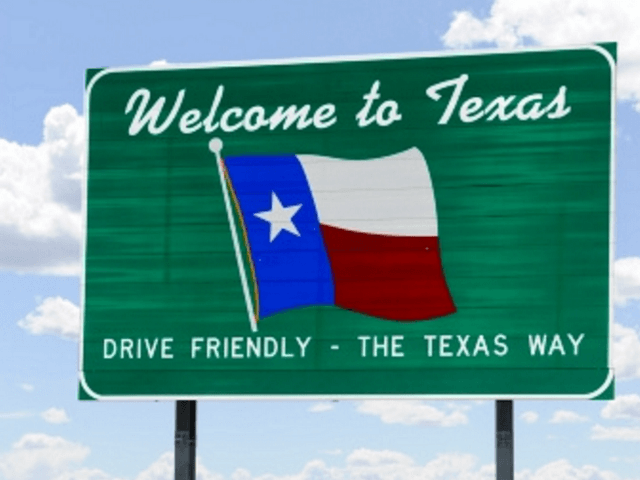For the 11th consecutive month, Texas added more new jobs, according to the Texas Workforce Commission (TWC), which released its February figures on Friday, March 25.
The state added 2,100 seasonally adjusted nonfarm jobs in February. The month’s unemployment rate fell to 4.4 percent, down from 4.5 percent in January, and remained below the national jobless average of 4.9 percent. According to TWC data, service-sector job gains offset losses in goods-producing industries during the month. Overall, Texas gained 170,900 jobs over the past year.
Texas Workforce Commission (TWC) Chairman Andres Alcantar said: “We continue to build local partnerships to equip the current and future workforce with the skills needed for the jobs being created by Texas employers.”
The Lone Star State saw its lowest February unemployment rates in Amarillo at 2.9 percent, followed by Austin-Round Rock, at 3.1 percent. San Antonio-New Braunfels came in at 3.5 percent. The Dallas-Fort Worth area’s unemployment rate was 3.7 percent, and Houston-The Woodlands-Sugarland, 4.7 percent.
“Private employers have expanded their payrolls by 142,800 jobs in Texas over the past year,” said Ruth R. Hughs with the TWC. “We are pleased to see that trend continue because it reflects the strength and resiliency of our state’s economy.”
Seven of the state’s 11 major service-sector industries experienced growth. Employment in education and health services meant 6,100 new jobs, continuing this industry’s upward trend for 37 months in a row. Solid growth also continued in areas of trade, transportation, and utilities, which added 5,500 jobs in February and recorded a 2.3 percent annual growth rate.
Likely contributing to this growth are the nearly 500,000 people, and corporations that moved their headquarters to or expanded their businesses into Texas in just one year, according to U.S. Census Bureau figures from July 1, 2014 to July 1, 2015. Breitbart Texas reported many of of them were California companies that traded in the Golden State’s high taxes, hostile business regulations, and unaffordable housing for Texas’ business-friendly climate and more affordable cost-of-living. Toyota, Liberty Mutual, Kubota, JP Morgan Chase, State Farm, Farmer Brothers, and Ratheon reflect a handful of the 219 corporations that migrated to the Lone Star State between 2008 and 2014. In 2015, Texas ranked No. 2 on the Fortune 500 list, with 54 companies, edging out California, which had 53. More recently, California companies Facebook, McKesson and Pegasus Foods joined the migration.
So pronounced is the exodus to Texas that California’s San Jose Mercury News reported on the high tech boom taking place in Austin, eclipsing the Silicon Valley as the center of the tech universe. The San Jose newspaper said the “entire state of Texas is transforming into the new tech mecca,” pointing to “innovation” corridors that reach across Texas for established and startup companies from Dallas-Fort Worth, Austin, Houston, and San Antonio to the West Texas tech-driven oil fields and the world’s first privately funded vertical rocket launch site in the Rio Grande Valley.
Texas ranks as the top high-tech exporting state, beating California for the third year in a row in 2015. Texas also leads the nation in cloud, network support, and data services jobs. The state comes in second for overall high-tech jobs and high-tech firms, gaming and entertainment software positions, and for engineering and electrical engineering doctorates awarded, according to the Mercury News. Additionally, Texas IT and software sectors rank No. 1 in foreign direct investments. Approximately two dozen California high tech companies began building or expanding operations in Texas since 2014.
Incentives like the Texas Enterprise Fund (TEF) make the state attractive to companies as Breitbart Texas’ Bob Price reported. The TEF’s mission is to help attract new companies to Texas and to expand existing Texas companies with the goal of creating more state jobs and stirring economic growth. TEF projects must be approved by the Governor, Lt. Governor and the Speaker of the House. The Texas Legislature created the TEF in 2003 and five subsequent legislatures reauthorized its funding.
One recipient of a $2.052 million grant offer is Swiss dermatology company Galderma. This week, Gov. Greg Abbott announced Galderma’s expansion into Texas. “The Lone Star State’s promise of a low-tax, low-regulation environment has attracted companies from around the globe,” he said.
Abbott’s University Research Initiative, signed into law in June 2015, also intends to spur growth by committing $8 billion in bonds and funding to attract more Nobel Prize laureates to raise the level of Texas universities into world-class status.
This article has been updated.
Follow Merrill Hope on Twitter @OutOfTheBoxMom.

COMMENTS
Please let us know if you're having issues with commenting.